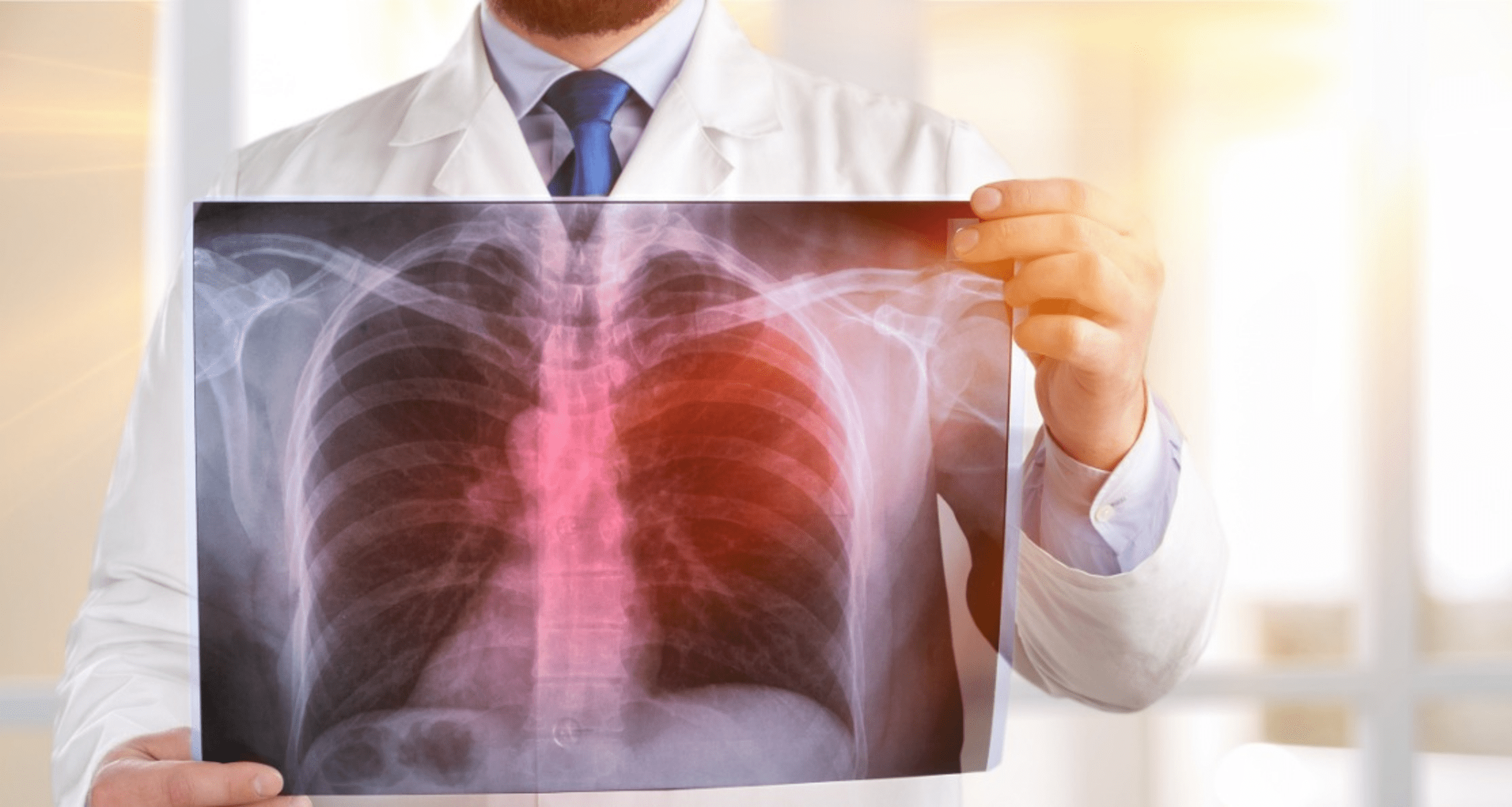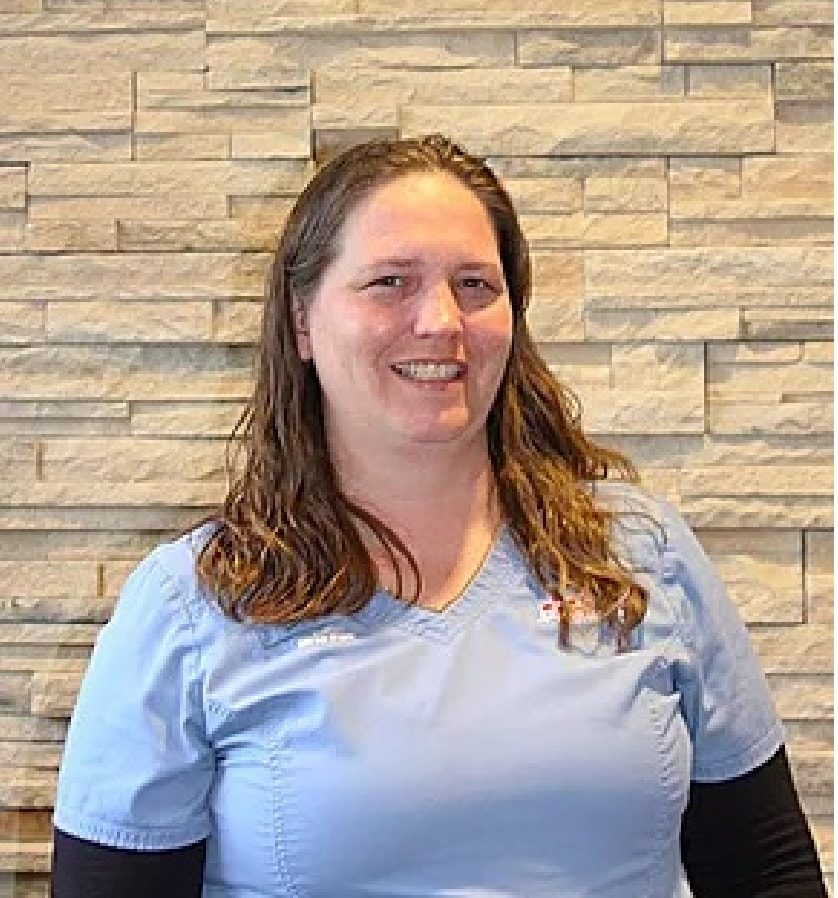
- Anyone with symptoms of COVID-19.
- Close contacts of known positive cases, regardless of symptoms.
- Get tested immediately if you are experiencing symptoms of COVID-19. If you do not have symptoms, you should wait at least six days after your last known exposure to COVID-19 before you get tested.
- Groups of some of the populations with higher risk of exposure or a higher risk of severe disease if they become infected. People in these groups should get tested if they believe they may have been exposed to COVID-19, whether or not they have symptoms.
- People who live in or have regular contact with high-risk settings (e.g., long-term care facility, homeless shelter, correctional facility, migrant farmworker camp).
- People from historically marginalized populations who have been disproportionately impacted by COVID-19.
- Frontline and essential workers (grocery store clerks, gas station attendants, child care workers, construction sites, processing plants, etc.)
- Health care workers or first responders.
- People who are at high riskof severe illness:
- 65 years of age or older
- Lives in a nursing home or long-term care facility
- Is pregnant
- Is a smoker
- Has a high-risk condition that includes:
- Cancer
- Chronic kidney disease
- Chronic Obstructive pulmonary disease (COPD)
- Heart conditions, such as heart failure, coronary artery disease, or
cardiomyopathies - compromised immune system from solid organ transplant
- obesity - body mass index (BMI) of 30 or higher
- sickle cell disease
- Type 2 diabetes
- People who have attended protests, rallies, or other mass gatherings could have been exposed to someone with COVID-19 or could have exposed others.
Most people who get COVID-19 recover without needing medical care. If you are experiencing severe, life threating symptoms (for example, severe difficulty breathing, altered thinking, blue lips), seek immediate medical care or call 9-1-1.

A cold is a milder respiratory illness than the flu. While cold symptoms can make you feel bad for a few days, flu symptoms
can make you feel quite ill for a few days to weeks. The flu can also result in serious health problems such as pneumonia.
Cold Symptoms usually begin with a sore throat, which will commonly go away after a day or two. Runny nose and congestion follow, along with a cough by days 3 through 5. Fever is not common in adults. Children are more likely to have a fever with a cold.
Common symptoms include:
- Sore throat
- Cough
- Runny or stuffy nose
- Sneezing
- Mild body aches
- Headache
- Watery Eyes
The Flu is a contagious respiratory illness that is caused by influenza viruses. It is a seasonal virus and is spread through droplets when people with flu cough, sneeze or talk. Flu symptoms can be mild to severe, and include:
- Heavy Cough
- Sore throat
- Runny or stuffy nose
- Muscle or body aches
- Headache
- Fatigue
- Fever and/or Chills
Young children, adults 65+, pregnant women and people with certain chronic illnesses are all at a higher risk of developing serious complications. The best way to protect ourselves, and those more vulnerable, from the flu, is to get an annual flu shot!
If you do come down with the flu, our providers can prescribe an antiviral medication proven to lessen the severity and duration of your illness. When taken promptly, antiviral can reduce the time you are sick by 1-2 days, ease symptoms, and prevent serious complications, such as pneumonia.

Strep throat is caused by an infection of streptococcus bacteria. Strep throat spreads by having contact with an infected person's saliva or nasal secretions. Although strep throat is more common in children ages 5 to 15, it also occurs in adults. To diagnose strep throat, CPCUC can check a rapid strep test or if necessary send a throat swab to the lab for a culture.
Symptoms associated with Strep Throat:
- Sudden sore throat
- Loss of appetite
- Painful swallowing
- Swollen lymph nodes
- Red tonsils with white spots
- Fever
Sore throatscan be caused by viruses or bacteria. The most common cause of sore throats are viruses. Viral sore throats are often accompanied by other cold symptoms. Other causes of sore throat include smoking, pollution or irritants in the air, allergies, and dry air.
Symptoms associated with Sore Throat(which can commonly accompany a cold):
- Runny nose,
- Watery eyes,
- Cough
- Sneezing
- Low Fever (below 101)
If you or your child is suffering from any symptoms that may indicate strep, it’s important to see a medical provider. Untreated strep throat can cause serious complications such as kidney inflammation and rheumatic fever.
If you are worried about strep throat, simply come to Carolina Priority Care. We are open 7 days a week and offer on-site strep testing. A provider can perform a physical exam and run a simple rapid antigen test to detect strep bacteria. He or she will swab your throat and test the swab to see if any antigens are present, with results available in just a few minutes.
If the test is positive, we can prescribe a course of antibiotics to fight the infection. Antibiotics can lessen the severity of your symptoms, reduce the duration of the infection, and prevent spreading the illness to others. With treatment, you should start to feel better within 1-2 days and fully recover within a week or so.
A fever is one way that the body defends against infections, and it can be effective. However, in some cases, the fever itself can become troublesome.
Very high fevers should be treated as an emergency condition, but even moderate fevers can make you feel miserable enough that you might seek out professional medical attention. At CPCUC, we can help you recover by providing caring, professional treatment for your fever.
Treatment
Our providers won’t just treat the fever; they’ll also check to see what underlying condition might have triggered your body’s defenses.
For fevers caused by colds or flu, which are viral infections, we can give advice for managing symptoms; for fevers resulting from bacterial infections, we can prescribe medications to help fight off the infection itself.
If you need treatment for a high fever, walk into CPCUC in Oak Ridge, Open 7 Days a week. You can also contact us for further information and reserve your time online to help streamline your visit
Productive Coughs
A productive cough produces phlegm or mucus (sputum). The mucus may have drained down the back
of the throat from the nose or sinuses or may have come up from the lungs. A productive cough generally should not be suppressed; it clears mucus from the lungs. Productive coughs can be caused from a variety of reasons, such as: viral illnesses, infections, chronic lung disease, smoking and others.
Non-Productive Coughs
A nonproductive cough is dry and does not produce sputum. A dry, hacking cough may develop toward the end of a cold or after exposure to an irritant, such as dust or smoke. There are many causes of non-productive coughs, such as: viral illnesses, allergies, medications, asthma, and others
Come to Carolina Priority Care to receive proper diagnosis and treatment for your cough.
Most of the time pneumonia is caused by a bacterial infection, but it can also be caused by a virus, fungus, or parasite. The infection causes inflammation in the lungs and causes the air sacs within the lungs – the alveoli – to fill with fluid or mucus. This fluid makes it difficult to breathe and limits the amount of oxygen the lungs can take in.
Pneumonia symptoms include:
- Chest pain.
- Shortness of breath.
- Cough, which may be productive.
- Fatigue
- Fever, shaking, and sweating chills.
- Nausea, vomiting, or diarrhea.
Bronchitis is an inflammation of the bronchial tubes, which carry air to your lungs. There are two types of bronchitis: acute and chronic. Acute bronchitis is common and usually is brought on by a cold or other virus. After you’ve been treated for acute bronchitis, you may have a lingering cough for several weeks.
Chronic bronchitis, however, is a constant inflammation of the bronchial tubes, usually caused by smoking. Bronchitis is considered chronic when it lasts at least three months, with recurring bouts of coughing that happen for at least two years in a row.
Bronchitis symptoms include:
- Cough
- Mucus present when coughing
- Fatigue
- Shortness of breath
- Slight fever and chills
- Sore chest
Treatment for Mild to Moderate Asthma Symptoms
When asthma problems aren’t severe enough to need emergency intervention but are too severe to treat at home, Carolina Priority Care is here to help.
Asthma treatment measures vary widely based on the severity of a given attack. Mild asthma flare-ups can require as little as a rescue inhaler, while some asthma attacks may require emergency room treatment followed by further observation.
Common symptoms of an asthma attack include:
- Wheezing
- Coughing
- Difficulty catching breath
- Tightness in the chest
- If an individual experiences any of the above symptoms, they should utilize their rescue inhaler and seek medical treatment immediately if symptoms do not subside
Allergies affect more than 50 million Americans each year! And while there is no cure for this pesky condition, you can manage your symptoms with prevention and treatment.
Beyond pollens and plants there are many alternate sources of allergies no matter where you are. Foods, insect bites, reactions to medicines, etc. can all result in allergic reactions.
Carolina Priority Care medical professionals are well versed in the allergies more common to Hawaii and Kauai and will diagnose your allergies accurately and prescribe the best possible treatment for your relief.
abdominal pain. Most of the causes are not serious and
can be readily diagnosed and treated. However, pain can
also be a sign of a serious illness. It’s important to be able
to recognize symptoms that are severe and know when to
call us at Carolina Priority Care.
What Are the Most Common Causes of Abdominal Pain?
Whether it is a mild stomach ache, sharp pain, or stomach cramps, abdominal pain can have numerous causes. These include:
- Indigestion
- Constipation
- Stomach “flu”
- Menstrual cramps
- Food poisoning
- Food allergies
- Gas
- Lactose intolerance
- Ulcers
- Pelvic inflammatory disease
- Hernia
- Gallstones
- Kidney stones
- Endometriosis
- Crohn’s disease
- Urinary tract infection
- Gastro esophageal reflux disease
- Appendicitis
What Symptoms of Abdominal Pain Are Cause for Concern?
If your abdominal pain is severe or if it is accompanied by any of the following symptoms, contact your doctor as soon as possible:
- Fever
- Inability to keep food down for several days
- Inability to pass stool, especially if also vomiting
- Vomiting blood
- Bloody stools
- Difficulty breathing
- Painful or unusually frequent urination
- The pain occurs during pregnancy
- The abdomen is tender to the touch
- The pain is the result of an injury
- The pain lasts for several days
These symptoms can be an indication of a medical issue that requires diagnosis and treatment by a medical professional. Call us at CPCUC.

We tend to think of headaches as a common malady affecting many of us and with some they occur far too often. There is no need to accept the pain as a part of life and you should look for relief and at Makana North Shore Urgent Care we can provide that for you.
Different types of Headaches
There are many causes for headaches however, they can be categorized into three main types; Sinus, Tension and finally Migraines, which can result in severe and extended pain.
Sinus Headaches
A sinus headache causes pain and pressure in the face, as well as congestion and fatigue. Some people that assume they have this type of headache may actually be experiencing a tension or even a migraine. Conferring with our medical professionals is important so you can ensure proper treatment.
Tension Headaches
Tension or stress headaches are the most common type of headache for adults. The pain involved is dull and aching, and can range from mild to moderate. We can help stop a tension headache with either over the counter or prescription medications such as pain-relievers, combination medications, or triptans.
Migraines
A migraine is a severe, throbbing headache that often occurs on one side of the head. Migraine symptoms include muscle tension, nausea, and vomiting, as well as increased sensitivity to light and sound.
The providers at CPCUC can help stop your migraine headache with acute treatment and migraine medication.
Infections can come in three forms: bacterial, viral and fungal.
The symptoms are similar for all, and without proper
treatment, can get worsen quickly and lead to the high cost
of emergency room bills.
Any of these symptoms can sometimes be very serious. Here is a breakdown of what an eye infection looks like and when you should see a provider urgently. Having just one or two of these symptoms can indicate an infection, but if you notice more than one of them or if they get worse as the days go by, it might be time to call us at CPCUC.
Severe Symptoms
- Swollen eyes or in the area around the eyes
- Blurry vision
- Eye discharge
- Pain
- Extreme light sensitivity
- Feeling of a foreign object in the eye
Milder Symptoms
- Itching
- Watery or dry eyes
- Red eyes
- Constant involuntary blinking
- Most Common Types of Eye Infections
An ear infection, or otitis, occurs when fluid builds up in the middle ear. At CPCUC we can provide convenient and effective treatment for ear infections for both children and adults. Symptoms of an
ear infection can include:
Symptoms
Ear infections are common in children, and an earache is typically the first symptom. Kids will often act irritated, tug at their ears or express pain in their ears, and an ear infection may also be accompanied by a fever. Here are some additional symptoms:
- Pain or discomfort inside the ear
- Feeling of pressure inside the ear
- Thick, yellow fluid coming from the ears
- Hearing loss
Our healthcare provider will determine the proper course of treatment base upon a patient’s age and other factors. Depending on the type and severity of infection, he or she may prescribe ibuprofen for pain management, or antibiotics may be necessary.
While most mild ear infections resolve without treatment, finding some relief can be as obtained by simply vising CPCUC. You can walk in whenever it’s most convenient for you or reserve your time online.
Our medical professionals routinely treat UTIs. When you have symptoms and are in pain, we will typically perform a urine test, to determine if you do indeed have a UTI. We will review urine cultures and ensure we prescribe, if necessary, the best course and type of antibiotic treatment for you.
UTIs, while painful, are not life-threatening, especially if caught and treated early. Visiting CPCUC for UTIs will be much faster and typically costs far less than an emergency room, and may also be covered by your health insurance.
Walk-In STD and HIV Testing
CPCUC has fully trained medical professionals to test for and provide treatment for STD and HIV. Walk-In or set an appointment any time. We provide comprehensive services for STDs such as: Rapid HIV, Gonorrhea, Chlamydia, Hepatitis B and C, Herpes, Syphilis, Trichomonas.
Confidential and Private STD & HIV Testing
We offer fast STD testing for HIV and other sexually transmitted diseases (STDs) in a safe, non-judgmental environment. You can visit at the time that works best for you. You will have a short wait at most, and you’ll have your results as quickly as possible. We’ll treat your illness and refer you to a specialist if needed.
Symptoms of STDs in Women
In women, symptoms of common STDs may include pain or burning during urination, abnormal vaginal discharge, bloody vaginal discharge, pain in the abdomen, spotting, itching, blisters, fever, swollen glands, open sores, and warts. Some STDs, like chlamydia, and gonorrhea cause no symptoms. If your sexual partner has been diagnosed with an STD, testing yourself is vital to prevent complications such as infertility and certain types of cancer.
Symptoms of STDs in Men
Men with STDs may experience discharge from the urethra, pain during urination, inflammation of the testicles or prostate, fever, or sores. Untreated STDs put you at risk for organ failure, infertility, and even brain damage. If you have an STD, your sexual partners are at risk of transmission, so the only way to protect them is to refrain from sexual activity until diagnosis and treatment are completed.
Call us first with any questions or simply walk-in anytime, any day.
COVID-19
Information Links






















